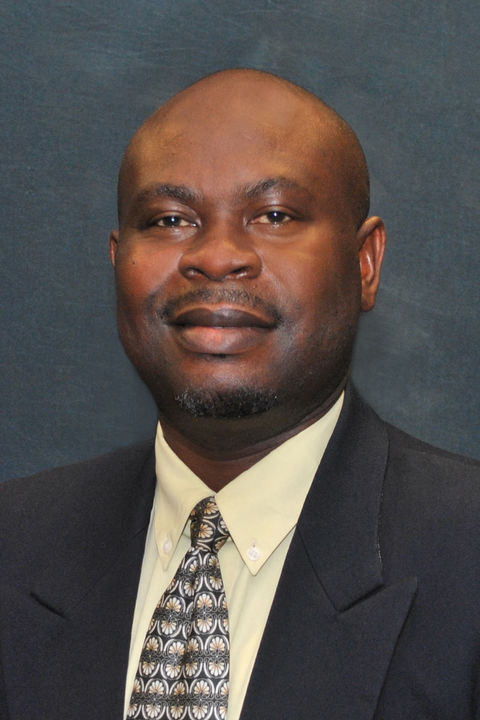
PENN STATE HBG
MIDDLETOWN, PA 17057
Biography
Dr. Reuben Asempapa received the BE.d. in Mathematics Education from the University of Cape Coast in Ghana. He holds the M.S. in Applied Mathematics from Youngstown State University and a Ph.D. in Curriculum and Instruction with a specialization in Mathematics Education from Ohio University. His teaching experience includes elementary and secondary mathematics education and various collegiate mathematics courses. As a former middle school and high school mathematics teacher, Dr. Asempapa teaches methods and content courses in mathematics for pre-service teachers, and statistics and quantitative methods in educational research for students in the School of Behavioral Sciences and Education. He frequently gives professional presentations at local, state, regional, national, and international conferences and workshops, and has an active research agenda with scholarly publications. His primary research focus is on mathematical modeling education for pre-service and practicing teachers, teachers’ content knowledge, and teacher professional development in modeling and statistics education. He also studies problem-solving as a learning tool and strategy to develop students’ interest in mathematics and implementing high cognitive demand tasks in mathematics classrooms.
Research Interests
- Application of statistical techniques in social science research
- Mathematical Knowledge for Teaching
- Mathematical Modeling Education
- Quantitative and Statistical Reasoning
- Quantitative methods for social science research
- Teacher Professional Development in Mathematical Modeling and Statistics in Early Grades
Publications
Asempapa, R. S., & Brooks, G. P. (in press). Factor analysis and psychometric evaluation of the mathematical modeling attitude scale for teachers of mathematics. Journal of Mathematics Teacher Education.
Asempapa, R. S., & Love, T. S (2021). Teaching math modeling through 3D–printing: Examining the influence of an integrative professional development. The School Science and Mathematics. 121 (2), 85–95.
Asempapa, R. S. (2020). The development of teachers’ knowledge of the nature of mathematical modeling scale. International Journal of Assessment Tools in Education. 7(2), 236–254.
Asempapa, R. S., & Sturgill, D. J. (2019). Mathematical modeling: Issues and challenges in mathematics education and teaching. Journal of Mathematics Research. 11(5), 71–81.
Asempapa, B., & Asempapa, R. S. (2019). Development and initial psychometric properties of the integrated care competency scale for counselors. SAGE Open. 9(3), 1–12.
Asempapa, R. S. (2019). Teachers’ knowledge of mathematical modeling: A scale development with exploratory factor analysis. In A. Redmond-Sonogo & J. Cribbs (Eds.). Proceedings of the 46th Annual Meeting of the Research Council on Mathematics Learning (pp. 51–58). Charlotte, NC. Research Council on Mathematics Learning.
Asempapa, R. S. (2019). Development and initial psychometric properties of the mathematical modeling attitude scale. School Science and Mathematics. 119(1), 14–23.
Asempapa, R. S., & Foley, G. D. (2018). Classroom assessment of mathematical modeling tasks. In M. Shelley & S. A. Kiray (Eds.), Education Research Highlights in Mathematics, Science, and Technology 2018 (pp. 6–20). Ames; IA. International Society for Research in Education and Science (ISRES).
Asempapa, R. S. (2018). Mathematical modeling: An important concept in mathematics education. Journal of Education and Practice. 9(24), 136–143.
Asempapa, R. S., & Asempapa, B. (2018). The integration of formative assessment and mathematical modeling practices. Pennsylvania Educational Leadership, 38(1), 15–23.
Asempapa, R. S. (2018). Assessing teachers’ knowledge of mathematical modeling: Results from an initial scale development. Journal of Mathematics Education, 11(1), 1–16.
Asempapa, R. S. (2017). Unpacking teachers’ attitude toward mathematical modeling: Implications for teacher education and professional development. In M. J. Mohr-Schroeder & J. Thomas (Eds.), Proceedings of the 116th Annual Convention of the School Science and Mathematics Association (Vol.4, pp. 6–14). Lexington, KY: School Science and Mathematics Association.
Asempapa, R. S., Sturgill, D. J., & Adabor, J. K. (2017). Mathematical modeling: A teaching and learning strategy in school mathematics. Pennsylvania Teacher Educator, 16, 66–75.
Asempapa, R. S. (2017). How Did we Get Here? The Path to Our Current K–12 Mathematics Education Curriculum in the United States. The AURCO Journal, 23, 1–10.
Asempapa, R. S. (2016). Validation of the mathematical modeling knowledge scale (MMKS) with practicing teachers. In M. J. Mohr-Schroeder & J. Thomas (Eds.), Proceedings of the 115th Annual Convention of the School Science and Mathematics Association (Vol.3, pp. 10–18). Phoenix, AZ: School Science and Mathematics Association.
Asempapa, R. S. (2015). Mathematical modeling: Essential for elementary and middle school students. Journal of Mathematics Education, 8(1), 16–29.
Education
Ph.D., Curriculum & Instruction-Mathematics Education (The Ohio University)
M.S., Applied Mathematics (Youngstown State University)
B.Ed., Mathematics Education (University of Cape Coast, Ghana)